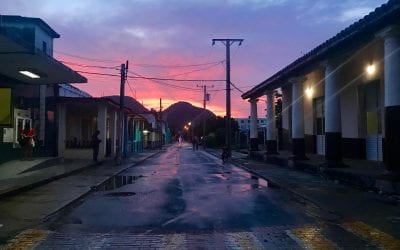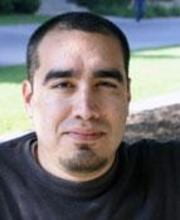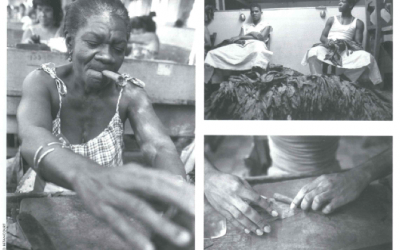The “Wordly” Classroom
A Student Trip and Its Legacy
Nearly two years ago, I took 17 graduate public policy students from Harvard’s Kennedy School of Government, ages 23 to 40, to Cuba as part of a short course called “Comparative Urban Policy”. Beyond wanting us all to learn about a fascinating country undergoing cataclysmic change, my aim was to teach some skills in “detective work” as part of an overseas visit – of the kind one would do for an international company, non-governmental organization (NGO), or multi-lateral aid agency. As an urbanist, I also wanted to remind students that macro-trends in politics and the economy wash ashore in particular places – important cities, for example – and must be understood for their effects on everyday people living in those contexts.
Our trip became a”global”classroom not only because it involved another country, because it extended their experiences through an ongoing website <http://www.ksg.harvard.edu/people/xbriggs/index.htm> with a student photoessay. To my delight and surprise, visitor traffic to the site has been high ever since it opened in mid-August 1997. I expected some to think that I had not been critical enough of the Castro regime, and some – a very small number, actually – thought that. But the vast majority of the hundreds of messages I have read use words like “balance,” “sensitivity,” and “thought-provoking” to describe the site. I did not expect, but am gratified by, all the queries by folks doing research on Cuba or planning trips of their own.
Reflecting the incongruities that seem par for the course for a week’s trip to Cuba, Lorena Barberia observed, “I went with a strong sense that I understood what was happening in Cuba . . . but left with deep conflicts and questions. The issues had become more personal.”
On some level, all of the students wanted visible proof of what the revolution had accomplished – and, more modestly, of what remains of it. While acknowledging uncanny progress in the social sector (now tainted by the pervasive scarcity of basic supplies), Cuba’s primitive physical infrastructure was a shock to some of the students, and so was the tourist-oriented commercialism to which Cuba has turned to earn hard currency. Cristina Rueda noted, “I see Cuba becoming again what it did not want to be, and I left wondering whether there is any one ‘right’ system for any society to follow.”.
My teaching objective was certainly not to lead students to easy answers – rather to focus on creative “problem-posing,” as the late Brazilian educator Paolo Freire called it. Stereotypes undone and assumptions exposed work best with a week in Cuba. Whatever the format or site, one thing is certain: we cannot “globalize” our curriculum and expect to stay at home.
I would say now that the best epilogue is that KSG students have self-organized a study tour to Cuba each year since my maiden voyage. I’m pretty proud of that fact and of the students themselves. I run into more and more students hungry for the in-country learning experiences we need to offer more of. Rarely is the American university classroom “global” – transported abroad to deal face-to-face with the world in all its complexity, emotion, and paradox.
Winter 2000
Xavier de Souza Briggs (“Xav”) is Assistant Professor of Public Policy at Harvard’s John F. Kennedy School of Government. He recently returned from leave, during which he served as the Assistant Secretary for Policy and Research at the U.S. Department of Housing and Urban Development.
Related Articles
Isabelle DeSisto: Student Perspective
encountered the first obstacle of my trip to the Isla de la Juventud before I even left Havana. Since American credit cards don’t work in Cuba, I couldn’t buy my plane tickets online. But that…
Honoring Humanity: An “Interview” with Richard Mora
Mauricio Barragán Barajas: Why don’t we begin by having you introduce yourself? RM: Alright. I was born in East Los Angeles, and grew up in Cypress Park, a barrio in…
Tobacco and Sugar
“Tobacco and Sugar” is the course that focuses American literatures on the Caribbean, and that acknowledges the unavoidable importance of monocultures for cultural studies. Much of the…




